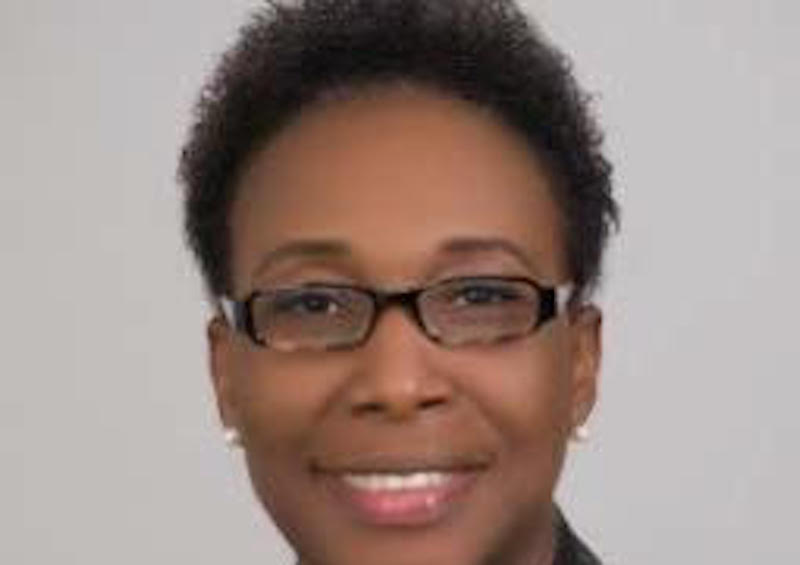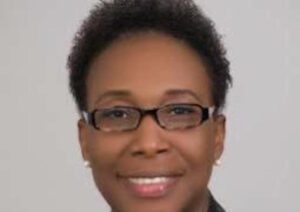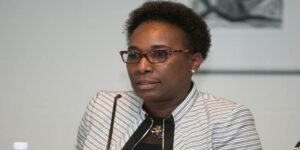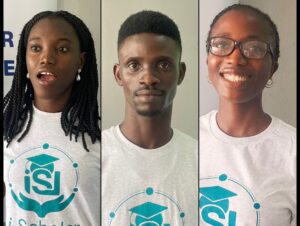Tolulope Ewherido is the chairperson of the I-Scholar Initiative board of trustees, a non-profit organisation that mentors and connects potential African students to fully funded programmes in top global universities. In this interview with Funmi Ogundare, she explained why the government must ensure access to quality education and scholarships for higher education and create a larger pipeline of higher-paying jobs that will address immediate economic concerns, among other issues.
For five years, the I-Scholar Initiative has supported Africa’s transformation by expanding the pipeline of change agents capable of driving leadership, innovation and overall development within the continent and across the diaspora, bridging the gap by empowering graduates to pursue fully funded master’s and PhD programmes globally.
The initiative’s board of trustees chairperson, Mrs Tolulope Ewherido, explained that since 2019, it had focused primarily on Nigeria and invested about $160,000, sponsored over 255 talented scholars, accessing scholarships totalling over $25 million, and helping individuals, especially from a less privileged background to achieve their dreams.

“Nigeria has an abundance of talent with the potential to drive economic innovation and transformation. A testament to this is the significant impact Nigerians are making in academia, industries, and businesses in Nigeria, Africa and across the globe,” said Ewherido.
She added, “However, a notable challenge exists; access to global education that can further drive innovation and higher economic outcomes has narrowed over time to mostly individuals who are financially privileged. iSI is creating a bridge. We are catalysts that say our scholars’ dreams of higher education and better economic attainment are as valid as those of individuals who come from more privileged backgrounds, and we are dedicated to helping them realise these dreams.”
She explained how its network of partners and donors had taken steps towards ensuring that students from less privileged backgrounds get scholarships by volunteering their time and supporting financially to cover multiple tests and application fees, offering loans for flights and initial settling expenses for each scholar, and mentorship.
“These dedicated individuals volunteer their expertise in reviewing applications, participating in scholar selection, hosting webinars, and providing valuable assistance in interview preparation for visas and universities,” she stressed.
Ewherido stressed the importance of mentorship to the scholars, saying that the mentors serve as more than just guides but as a reliable sounding board, a potent source of motivation, and trusted advisors throughout the entire trajectory before, during, and after their graduate studies.
Ewherido highlighted the substantial contribution of Nigerians, both within and outside the country, to national growth.
“Nigeria has the largest population of youth in the world. About 70 per cent of the population of greater than 200 million people is under 30 years, and 42 per cent is under the age of 15,” she pointed out. “In 2022, remittances from Nigerians living abroad amounted to approximately $20 billion, constituting about four per cent of Nigeria’s GDP. To put this in perspective, the oil sector, a significant contributor to GDP, accounted for approximately six per cent in the same year.”
The former President/VP of Exploration in Africa, Canada, Brazil and Asia at Exxonmobil, stated that its scholars are actively managing key operations within iSI, sharing valuable resources like ‘The i-Scholar Guide: Your Grad School Journey Compass’ for free to assist others, thereby making meaningful financial contributions to their families and enhancing access to education within their communities at home.
She, however, said the responsibility to foster the economy lies with the government, private enterprises, and public entities, adding that national development also necessitates a segment of the population equipped with the right knowledge and higher education both at home and abroad to drive innovation and transformation.
“Our vision at iSI is crystal clear: through education and opportunities, we aim to be a catalyst for positive change, nurturing a more prosperous and vibrant Nigeria,” stated Ewherido. “Every iSI scholar intimately understands and embraces this vision. They recognise that their success is intricately linked to Nigeria’s success.”
Asked about her expectations for the year in terms of getting more students on board to study STEM-related courses, she noted that iSI “has remained steadfast” in its commitment to growing the STEM pipeline.
In iSI’s initial stages, over 90 per cent of its scholars were dedicated to STEM disciplines. However, Ewherido said there was a profound acknowledgement that sustainable development demands a holistic approach beyond STEM skills. It necessitates a diverse pool of individuals skilled in humanities, arts, and business.
In alignment with this, she added that iSI strategically diversified its current scholar pool to encompass a broader range of disciplines. By doing so, iSI aims to create a well-rounded and versatile group of individuals who can contribute to technological advancements and the multifaceted aspects of sustainable development. This inclusive approach ensures that iSI scholars, equipped with a spectrum of skills and expertise, are prepared to address the complex challenges and opportunities in various fields, fostering a more comprehensive and impactful contribution to the development of Nigeria and beyond.
Ewherido advised the government to ensure access to quality education and scholarships for higher education and create a larger pipeline of higher-paying jobs that will address immediate economic concerns, providing a crucial stepping stone for youth to achieve improved economic and leadership outcomes.
She added that barriers that currently hinder talented individuals from underprivileged backgrounds could be broken by allocating more funding to this critical area.
Credits:
This article was originally published in ThisDay, a Nigerian national daily newspaper.



